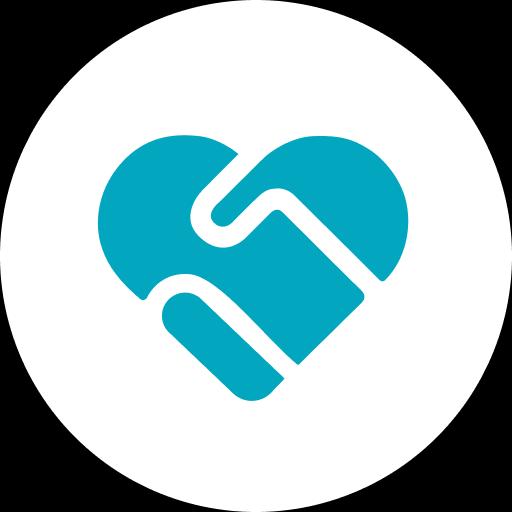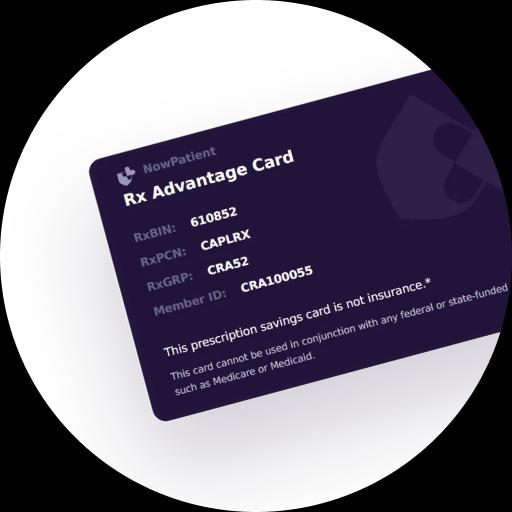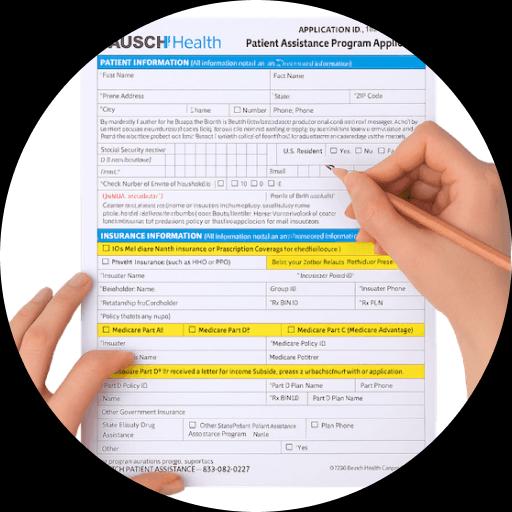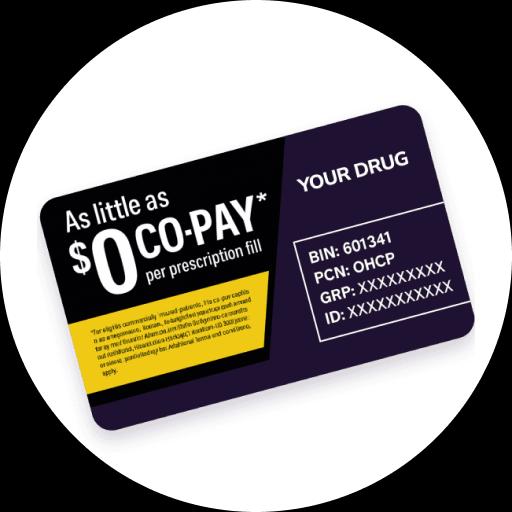Save on Atenolol/Chlorthalidone with Coupons, Discounts & Savings Programs


Start Saving Today!
Lower the Cost of Your Atenolol/Chlorthalidone Prescription
More great savings
View Related Brands
MEDICAL INFORMATION
Atenolol/Chlorthalidone Key Facts
What dosages is Atenolol/Chlorthalidone available in?
Atenolol/Chlorthalidone is available as a 50 mg/25 mg and 100 mg/25 mg oral tablet.
What is Atenolol/Chlorthalidone used for?
Atenolol/Chlorthalidone is a beta-blocker and diuretic that is used to treat high blood pressure.
How does Atenolol/Chlorthalidone work?
Atenolol/Chlorthalidone is a combination of two different medications that both work to lower blood pressure. Atenolol is a cardioselective beta blocker. It works by blocking chemicals that attach to receptors on the heart. This slows down your heart rate and lowers your blood pressure. Chlorthalidone is a thiazide-like diuretic (water pill) that makes you urinate more. It works in the kidneys to remove extra water and salts, which then lowers blood pressure and swelling.
How do I take Atenolol/Chlorthalidone?
The typical starting dose of Atenolol/Chlorthalidone is 50 mg/25 mg (Atenolol/Chlorthalidone) by mouth once daily. Your provider might raise your dose slowly over time. The maximum recommended dose is Atenolol/Chlorthalidone 100 mg/25 mg (Atenolol/Chlorthalidone) once daily. Your dose might differ if you have kidney problems.
Is it safe for me to take Atenolol/Chlorthalidone?
Atenolol/Chlorthalidone is a safe and effective treatment when used for FDA licensed indications. However, like all medications, they may give you unwanted side effects. You should always discuss potential side effects with your physician to ensure the medication is suitable and right for you. You should not use this medication if you have sinus
bradycardia, heart block greater than first degree, cardiogenic
shock, overt cardiac failure, anuria, or a hypersensitivity to this product or to sulfonamide-derived drugs.
Atenolol/Chlorthalidone Common Side Effects
Common side effects of Atenolol/Chlorthalidone:
- Dizziness
- Nausea
- Slow heartbeat
- Dizziness when standing up too quickly
- Stomach irritation or cramps
- Nausea
- Constipation
Atenolol/Chlorthalidone Serious Side Effects
Serious side effects are rare with Atenolol/Chlorthalidone. Contact your healthcare provider immediately if you experience any of the following.
- Severe allergic reaction: difficulty breathing, swelling of the tongue, mouth, or throat, hives
- Heart failure: trouble breathing, swelling in the legs, ankles, or feet, feeling tired, unable to exercise
- Bronchospasm: tightness in the chest, trouble catching your breath, difficulty breathing, wheezing, cough, dizziness, extreme tiredness
Effects of other drugs, drug classes and over-the-counter products on Atenolol/Chlorthalidone
The following medications may interact with Atenolol/Chlorthalidone:
- Atenolol/Chlorthalidone may potentiate the action of other
- antihypertensive agents used concomitantly. Patients treated with Atenolol/Chlorthalidone plus a catecholamine depletor (eg reserpine) should be closely observed for evidence of
- hypotension and/or marked bradycardia which may produce vertigo, syncope or postural hypotension.
- Calcium channel blockers may also have an additive effect when given with Atenolol/Chlorthalidone
- Disopyramide is a Type I antiarrhythmic drug with potent negative inotropic and chronotropic effects Disopyramide has been associated with severe bradycardia, asystole and heart failure when administered with beta blockers
- Amiodarone is an antiarrhythmic agent with negative
- chronotropic properties that may be additive to those seen with beta blockers
- Thiazides may decrease arterial responsiveness to
- norepinephrine. This diminution is not sufficient to preclude
- the therapeutic effectiveness of norepinephrine. Thiazides
- may increase the responsiveness to tubocurarine.
- Concomitant use of prostaglandin synthase inhibiting drugs
- eg, indomethacin, may decrease the hypotensive effects of beta blockers.
- Lithium generally should not be given with diuretics because they reduce its renal clearance and add a high risk of lithium toxicity. Read prescribing information for lithium preparations before use of such preparations with Atenolol/Chlorthalidone
- Beta blockers may exacerbate the rebound hypertension which can follow the withdrawal of clonidine
- Both digitalis glycosides and beta-blockers slow trioventricular conduction and decrease heart rate
- Concomitant use can increase the risk of bradycardia
Who makes Atenolol/Chlorthalidone?
Various FDA-approved generic manufacturers
Is Atenolol/Chlorthalidone safe in pregnancy?
Atenolol/Chlorthalidone use during pregnancy can cause harm to unborn babies, like growth problems. If you’re thinking of becoming pregnant, talk to your provider about safer options to manage your blood pressure. If you become pregnant while taking Atenolol/Chlorthalidone, call your provider right away.
What is the brand name for Atenolol/Chlorthalidone?
Medical Disclaimer
NowPatient has taken all reasonable steps to ensure that all material is factually accurate, complete, and current. However, the knowledge and experience of a qualified healthcare professional should always be sought after instead of using the information on this page. Before taking any drug, you should always speak to your doctor or another qualified healthcare provider.
The information provided here about medications is subject to change and is not meant to include all uses, precautions, warnings, directions, drug interactions, allergic reactions, or negative effects. The absence of warnings or other information for a particular medication does not imply that the medication or medication combination is appropriate for all patients or for all possible purposes.
OUR CUSTOMERS VIEW
What Customers Love About Our Service
We want everyone to be happy and healthy, that’s what keeps us going. Read what some of them have to say about us.
Medicines Experts
Meet Our Medical Team
We are a broad skilled and passionate group of clinicians with experience of operating in health systems in the United Kingdom & United States. Providing excellent care and advice is at the heart of everything we do. You can read more about our medical team by visiting the medical team page or learn more about how we curate content by visiting our editorial process

























